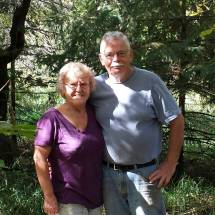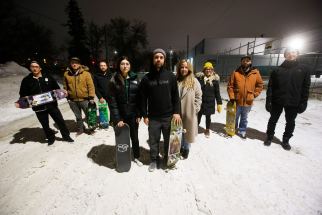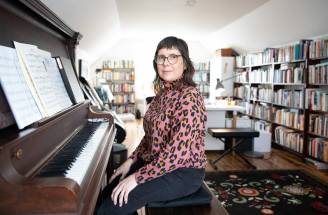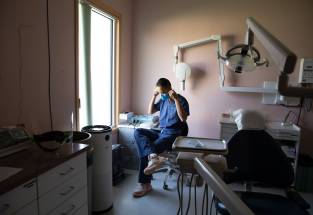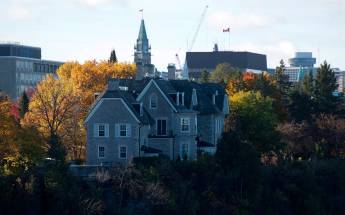Bravely out, disappointingly out in the cold LGBTTQ+ skateboarding community crashes into evangelical-run — but publicly funded — facility’s repressive policies, triggering staff exodus and eliminating access
Read this article for free:
or
Already have an account? Log in here »
To continue reading, please subscribe:
Monthly Digital Subscription
$0 for the first 4 weeks*
- Enjoy unlimited reading on winnipegfreepress.com
- Read the E-Edition, our digital replica newspaper
- Access News Break, our award-winning app
- Play interactive puzzles
*No charge for 4 weeks then price increases to the regular rate of $19.00 plus GST every four weeks. Offer available to new and qualified returning subscribers only. Cancel any time.
Monthly Digital Subscription
$4.75/week*
- Enjoy unlimited reading on winnipegfreepress.com
- Read the E-Edition, our digital replica newspaper
- Access News Break, our award-winning app
- Play interactive puzzles
*Billed as $19 plus GST every four weeks. Cancel any time.
To continue reading, please subscribe:
Add Free Press access to your Brandon Sun subscription for only an additional
$1 for the first 4 weeks*
*Your next subscription payment will increase by $1.00 and you will be charged $16.99 plus GST for four weeks. After four weeks, your payment will increase to $23.99 plus GST every four weeks.
Read unlimited articles for free today:
or
Already have an account? Log in here »
Hey there, time traveller!
This article was published 21/11/2022 (1112 days ago), so information in it may no longer be current.
When Maddy Nowosad was 18 years old, she stumbled across a video on Instagram, a clip of dazzling tricks by American pro skateboarder Mariah Duran.
The video sparked something inside her. A memory of how much she’d loved skateboarding as an eight-year-old kid before she’d drifted away from the sport for lack of friends who liked it as much as she did.
Inspired, Nowosad took up skating again. At first just in her backyard; but in 2019, she found The Edge.
The facility, Winnipeg’s only full-sized indoor skatepark, would transform her life. For her and countless others, it would be their entry point to the city’s close-knit and famously positive skateboarding scene. A place to tend their physical well-being, but also to build something like a second family. A place of peer support, and of healing.
“It’s such a beautiful space,” Nowosad says, and she means in more ways than one.
JOHN WOODS / WINNIPEG FREE PRESS Winnipeg’s only full-sized indoor skatepark would transform Maddy Nowosad's life. 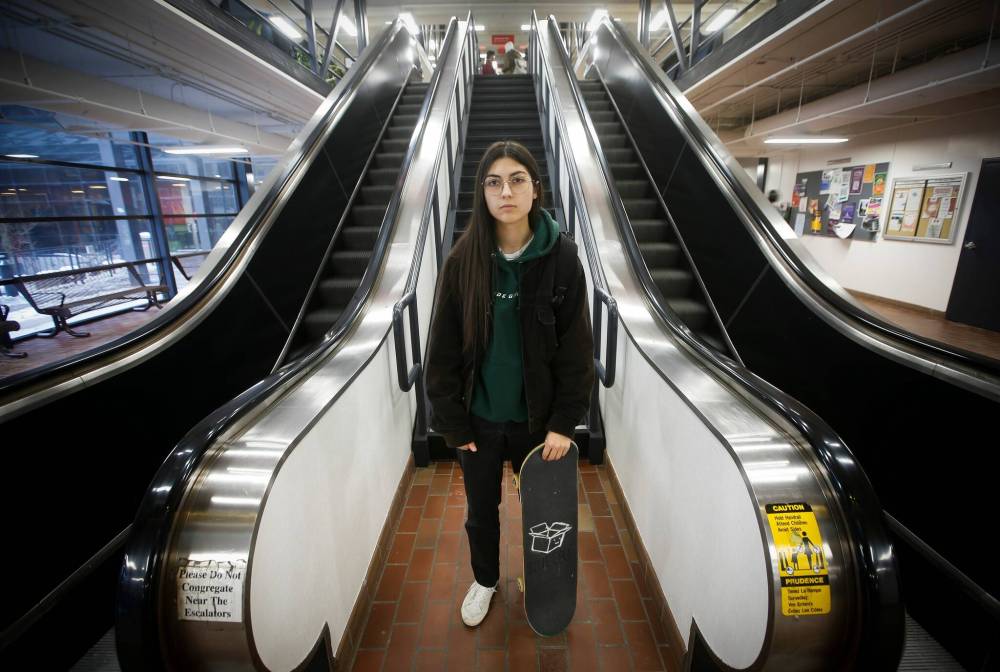
But years of tension over parent organization Youth For Christ’s policies restricting open LGBTTQ+ identification have spurred mass staff and volunteer resignations at The Edge, which has sharply cut back its hours and eliminated regular programming for skaters over the age of 17.
That’s left hundreds of skaters out in the cold now.
It wasn’t always like this. The first time she went to a public session at The Edge, Nowosad, now 22, was “shocked,” she says. It was a Thursday night, which at the time was a dedicated skate time for girls and women: she was amazed how many other people were there, how warmly they welcomed her and how quickly they became friends.
“My eight-year-old self was like, ‘what?’” she says with a laugh.
At the time, Nowosad, who identifies as queer, was “deeply in the closet,” she says. But at the facility, which is located in the Youth For Christ complex at the corner of Higgins and Main, she found a community that embraced her. She met other LGBTTQ+ skaters, who helped her feel safe to come out; she even met her partner of three years at the park.
JOHN WOODS / WINNIPEG FREE PRESS While The Edge staff were widely supportive of initiatives, several skaters told the Free Press those requests met with resistance from YFC leadership. 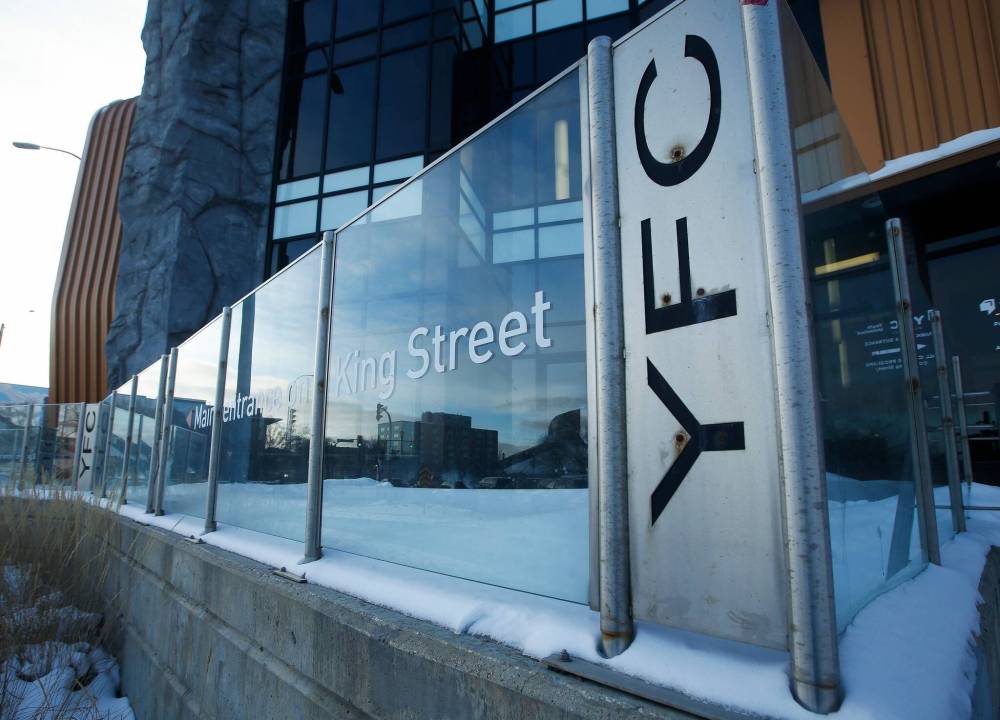
“That changed the course of my life,” she says. “For me, that space was key to bringing really important friendships in my life, having community to be there for me and support me, not only in my skateboarding journey, but also in my personal journey through life. It was huge for my mental health and forming community friendships.”
That joy would be short-lived. YFC, an evangelical Christian non-profit that has received millions of dollars in public funding for its downtown community centre, has policies that stifle LGBTTQ+ expression, such as requiring staff and volunteers to sign statements agreeing with the organization’s religious and social values.
So when Nowosad and her friends started a zine — a small-circulation publication — for queer skaters, they were told they couldn’t openly share it in the YFC space. They also wanted to hold sessions that openly welcomed queer people, as well as allow LGBTTQ+ staff and volunteers to be open about their identities at the facility.
While The Edge staff were widely supportive of these initiatives, several skaters told the Free Press, those requests met with resistance from YFC leadership. For months the skateboard community held dialogues with the organization, hoping to find a way forward that would allow more open LGBTTQ+ expression. That communication went nowhere, Nowosad says.
MIKE SUDOMA / FREE PRESS FILES When Nowosad and her friends started a zine for queer skaters, they were told they couldn’t openly share it in the YFC space.
“The labour that we put into trying to work with, work around and make our voices heard with this institution is ridiculous,” she says. “The amount of emotional labour that goes into trying to get a global institution with these policies around North America to change, it’s just not as generative and healing for the community.”
Over the last 18 months, roughly three dozen staff and volunteers at The Edge left in protest of YFC’s policies, several skaters told the Free Press. Last month, The Edge announced that due to lack of staff, the 13,000-square-foot facility — widely considered one of Canada’s finest indoor skateparks — would only operate two nights a week, and only for skaters under age 18.
In a statement sent to media Monday, Youth For Christ acknowledged the staff shortages at The Edge and the decision to prioritize youth for the available hours. It also stated that “all young people are welcomed and valued” at the organization, “regardless of religious belief, people group, or sexual orientation.”
The statement emphasized the organization’s roots as a faith-based ministry, but added that “all opportunities to learn about Christianity and faith in Jesus are voluntary and optional.” It did not address the organization’s policies around open LGBTTQ+ identification for staff or volunteers, or other ways skaters reported LGBTTQ+ expression as being discouraged.
“It’s a massive missed opportunity for YFC. It’s a gift they were given, and they’re just not stewarding it well.”–Chara Smeall
Eliminating access to older skaters is a major loss for the community, says Charla Smeall, who owns Winnipeg skate shop SK8.
“As a Christian organization, you should be so lucky to have this population, and this multimillion-dollar amazing, world-class skatepark and that you’d want to share the wealth and be generous and steward this community,” Smeall says. “It’s a massive missed opportunity for YFC. It’s a gift they were given, and they’re just not stewarding it well.”
With no other large indoor alternative in the city, adult skateboarders are cut off not just from the sport but also from their primary source of community during the winter. Given that many skaters rely on those social environments for mental health, that loss can be devastating, says former Edge director Geoff Reimer, who left in 2021.
“I gave my entire adult life there,” Reimer says. “I believe in it. The skateboard community, the way I described it to someone once, it’s like if you have a faith. It could be a temple, mosque or church, and if they decided to shut their doors and you can’t be with the people who uplift you and you do your recreation with, and that’s a lot of your social support, mental support.
“For that to be all of a sudden taken completely away, it’s a pretty big shock on their health.”
“What really everybody wants right now is just to move forward into a new space of healing.”–Maddy Nowosad
In the wake of The Edge cuts, skateboarders are joining together to raise a new vision. Over the summer, groups including the trans- and queer-led Crowbar Skates organized a number of inclusive community events to bring skaters together, and to spark discussions about what could follow.
“What really everybody wants right now is just to move forward into a new space of healing,” Nowosad says. “It sucks that it had to come from a lot of hurt, but I think there’s something really beautiful in everyone coming together, and wanting to build something new together.”
Now, many community members, including Nowosad, Reimer, Smeall and others have launched a new group, the Manitoba Skateboard Coalition. Their goal is to build an indoor skatepark that will welcome people of all ages, genders and orientations. They’ve launched a website at ManitobaSkateboarding.com, a GoFundMe and an online petition.
“I feel like this new space, and even just organizing for it has brought some healing,” Nowosad says. “Just feeling seen and heard and validated by the community is much more important to me than feeling heard by YFC. I don’t think that’s even possible at this point. I think the roots of homophobia in the organization run far too deep.”
In some ways, building an indoor skate park doesn’t take much. Reimer estimates it would cost only a few thousand dollars to build ramps and other features that can be designed by skaters. What they need, above all, is the space; ideally, they’re looking for an empty warehouse or similar commercial space of about 10,000 square feet.
JOHN WOODS / WINNIPEG FREE PRESS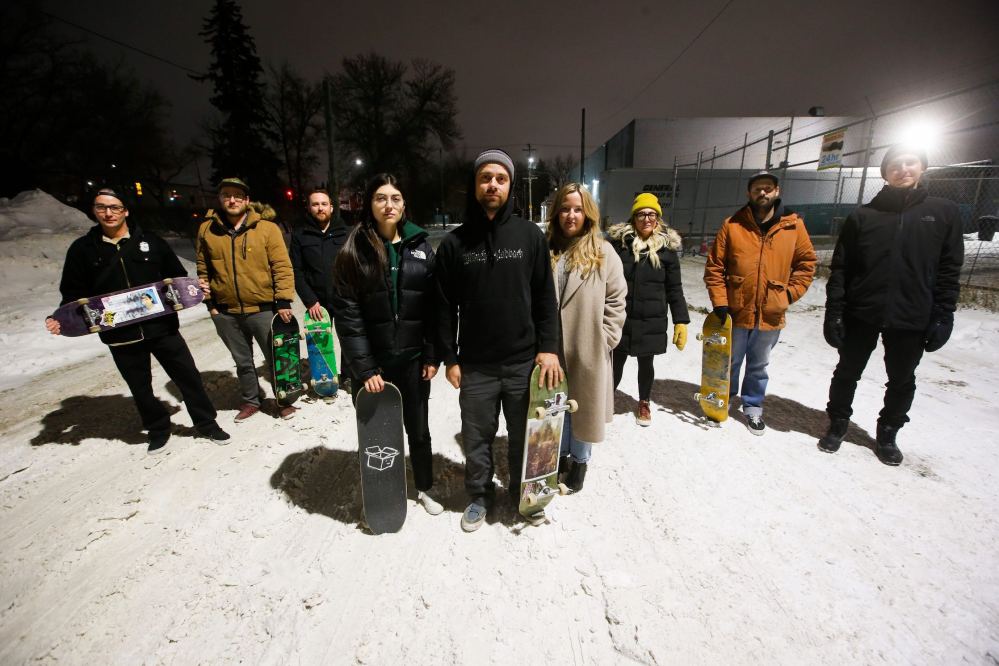
Reimer hopes that somewhere in Winnipeg is a donor with the cash, or the venue, to make that dream come true.
“I almost feel like skateboarding might be the thing to save the world,” Reimer says. “Before we were talking about women in sport, skateboarding was long doing it. Before we were talking about the queer community in sport, skateboarding was doing it. Rich, poor, young, old, black, white, guy, girl. It’s what the world should be.
“The city needs us to keep being together to show what the community can look like.”
And though the events of the last years have been painful, Nowosad says, they don’t take away what The Edge meant, to her and so many others. The physical space may change, but the community around it, she believes, will find somewhere safe to remain. That’s what the coalition is focused on now, she says, and she hopes others will support that vision.
“Meeting so many other queer folks completely changed my life. I will be forever grateful to the people that I met at (The Edge). Which is very strange just because everything that we talked about. But it’s the people for me, it’s not where I was.”
melissa.martin@freepress.mb.ca
Our newsroom depends on a growing audience of readers to power our journalism. If you are not a paid reader, please consider becoming a subscriber.
Our newsroom depends on its audience of readers to power our journalism. Thank you for your support.
History
Updated on Monday, November 21, 2022 7:41 PM CST: minor edit



